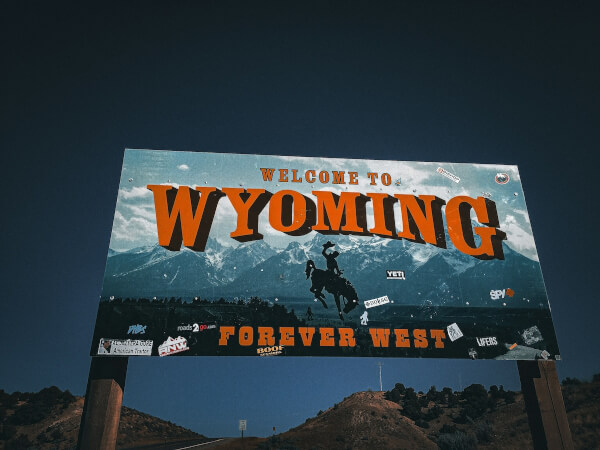Business Partnership Definition: Types, Advantages, and How to Start One
Understand the definition of a business partnership, explore its types, advantages, and disadvantages, as well as how to form a partnership

With a population of only around five million people, Norway is a thriving member of the global economy. A global leader in industries as diverse as maritime, energy, technology and communications, Norway is an attractive place to do business. In fact, around 35,000 new businesses are registered in Norway every year.
If you’re thinking of opening a business in Norway, you’ll find an enterprise-friendly administration with simple and well-supported process requirements. Use this guide to get started and, before you know it, you’ll be starting your business in Norway.
The main types of corporate entities used in Norway are:
Opening an NUF is a good idea if you're already running a business in your home country and want to expand to Norway.
A sole proprietorship is intended for those working predominantly alone. To open a sole proprietorship, your business must have an address in Norway - although you don’t have to be a resident yourself.
The AS structure is the most common and requires business partners to invest and hold a minimum deposit level before the business can operate.
You can find a lot of detailed information about how to register different types of business in Norway on the Altinn site. This is the ‘Point of Single Contact’ created by the Norwegian government to provide all the information entrepreneurs and business owners might need.
You can compare the administration needed to start a business in Norway with that in other countries in the World Bank's 'Doing Business' report. This summarises some of the main legal and bureaucratic steps you’ll need to take when starting your new venture.
In order to start an AS business in Norway, you’ll need to deposit a fixed minimum capital amount of at least 30,000 Norwegian Krone (NOK) into a corporate bank account. To make sure you get the best possible deal, you should consider using Wise. You’ll get the same exchange rate you see on Google, and a fair and transparent fee so you’ll get more money in the end.
The minimum capital isn’t necessarily required if you want to open a sole proprietorship.
You must be over 18 to start a business in Norway, and if you’re a foreign national you’ll need a ‘D Number’. This is the registration card used for all foreigners in Norway.
To get your business up and running, you need to register it with the Register of Business Enterprises. You should file for VAT registration either at the time of registering the business, or once your turnover exceeds 50,000 NOK. Detailed information about how to register your business, depending on its type, can be found online.
Business registration processes can be completed online via Altinn in most cases. In fact, you're charged a lower fee of 5570 NOK if you use the online process instead of using regular mail. Submitting documents by post will cost you a higher fee of 6797 NOK.
The documents you’ll need to open a business vary by organisational structure. To open an AS you’ll need to prepare the following;
To register a sole proprietorship, you need to provide details of the company name, activity and owner. Once you’ve submitted all the information required, you’ll be asked to sign documents electronically to agree the contents. A few days later you’ll be notified by email that the process is fully completed.
If you have employees at your Norwegian business, you must enroll them in a mandatory pension plan and buy workers’ injury insurance for them. You have a six month grace period to arrange the pension plan and can choose which provider and pension product to use. Before you start to employ others, you should register with the local National Insurance office and the Directorate of Labour Inspection. Here you can find more information about the specific requirements and relevant obligations toward your employees.
Once you’re trading, you’ll be responsible for paying taxes to the Norwegian government. Tax varies according to different business structure, so it's a good idea to contact your local tax office to talk through your circumstances. For guidance, you’ll need to check online for the taxes for each different business type.
If you're thinking of starting a business in Norway, you might find that your home embassy in Oslo has help and support on hand. The US embassy in Norway, for example, provides information and support for new businesses in the country. Alternatively, look to the Norwegian government. Invest in Norway is a government-operated agency who works to support foreign businesses. They have a regional network within Norway and a presence in some 30 other countries, giving them impressive reach.
There are also various organisations such as Startup Norway and Startup Lab who operate networking and information events and support the startup ecosystem through business incubator programs. Similarly, Siva supports 2000 startup businesses in Norway every year through building business premises, supporting new businesses and developing co-working spaces.
If you’re still a bit lost, a very good general guide to opening a business in Norway can be found in this government produced handbook, which includes information about tax and national insurance, business accounting and financial reporting. There’s also a handy glossary section which explains some commonly used phrases relevant to Norwegian tax, law and business.
Once you’re in Norway and working, look for local networking events on sites such as Meetup, Eventful and Eventbrite. Here you can meet like-minded people and build your customer and business contact book.
With some planning, and a little help from your new network and friends, your business in Norway will get off to a flying start.
*Please see terms of use and product availability for your region or visit Wise fees and pricing for the most up to date pricing and fee information.
This publication is provided for general information purposes and does not constitute legal, tax or other professional advice from Wise Payments Limited or its subsidiaries and its affiliates, and it is not intended as a substitute for obtaining advice from a financial advisor or any other professional.
We make no representations, warranties or guarantees, whether expressed or implied, that the content in the publication is accurate, complete or up to date.

Understand the definition of a business partnership, explore its types, advantages, and disadvantages, as well as how to form a partnership

Learn all about forming a Wyoming LLC, including benefits, formation process, costs, and privacy protections. Discover why Wyoming is a top choice for LLCs

Learn about forming an LLC in Arkansas, including benefits, costs, taxes, and the formation process. Discover why Arkansas is a great state for LLCs.

Learn about forming an LLC in Indiana, including benefits, costs, taxes, and the formation process. Discover why Indiana is a great state for LLCs.

Discover the benefits and setup process of a manager managed LLC. Learn the differences between manager managed and member managed LLCs and more.

Learn the meaning of SKU, its definition, and how it benefits inventory management. Discover examples and best practices for using SKUs effectively.